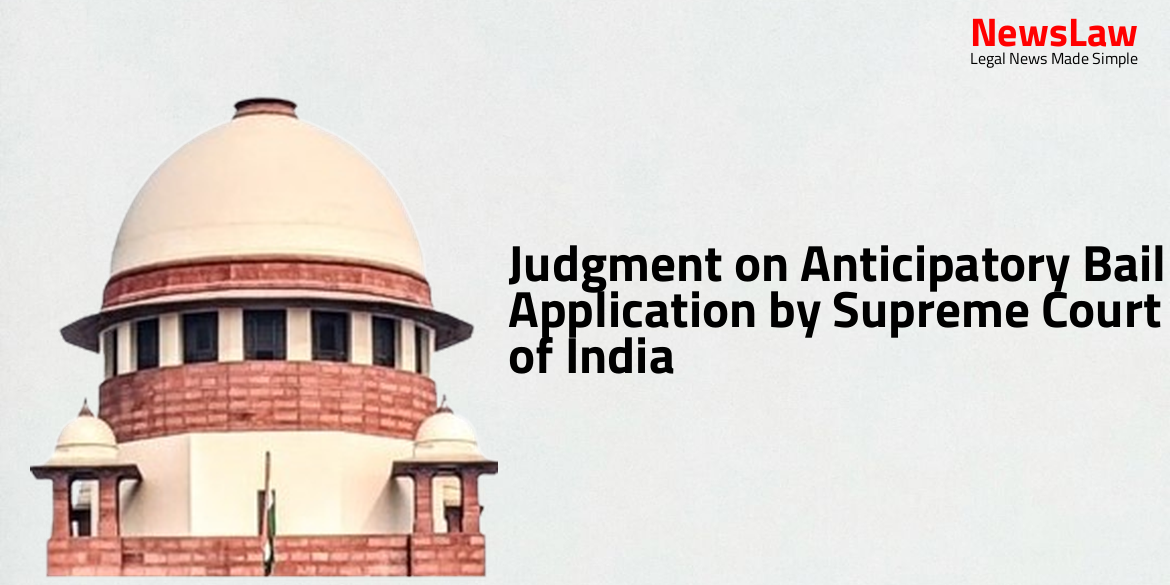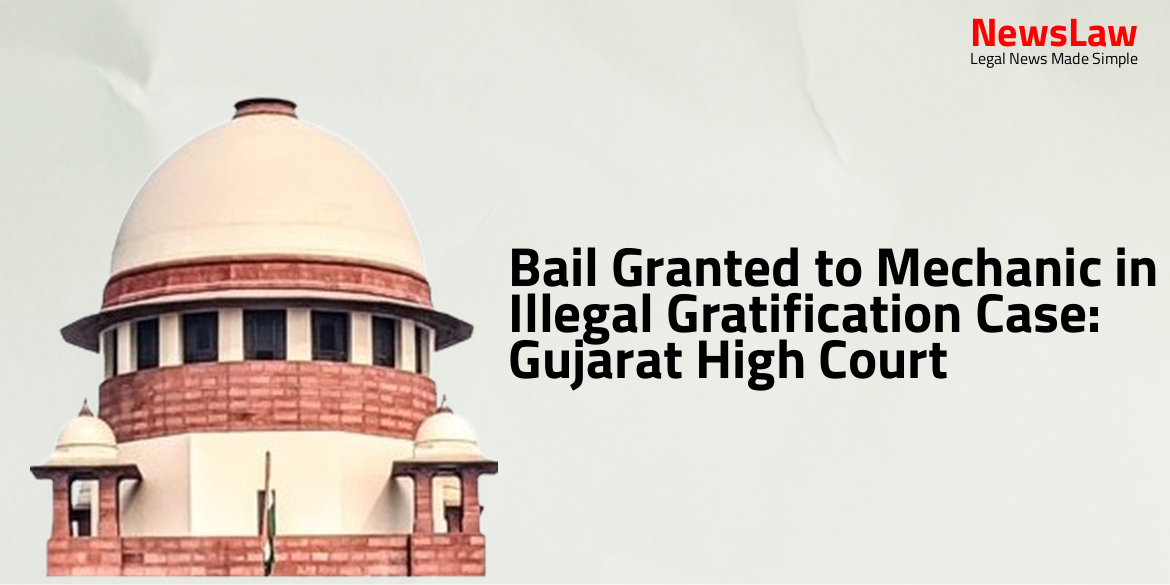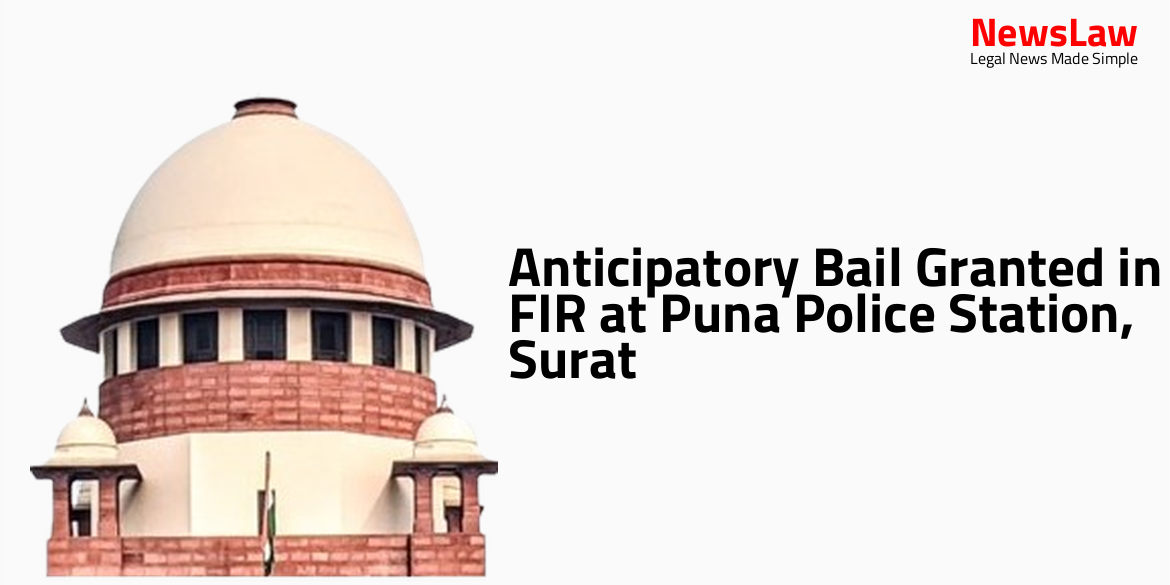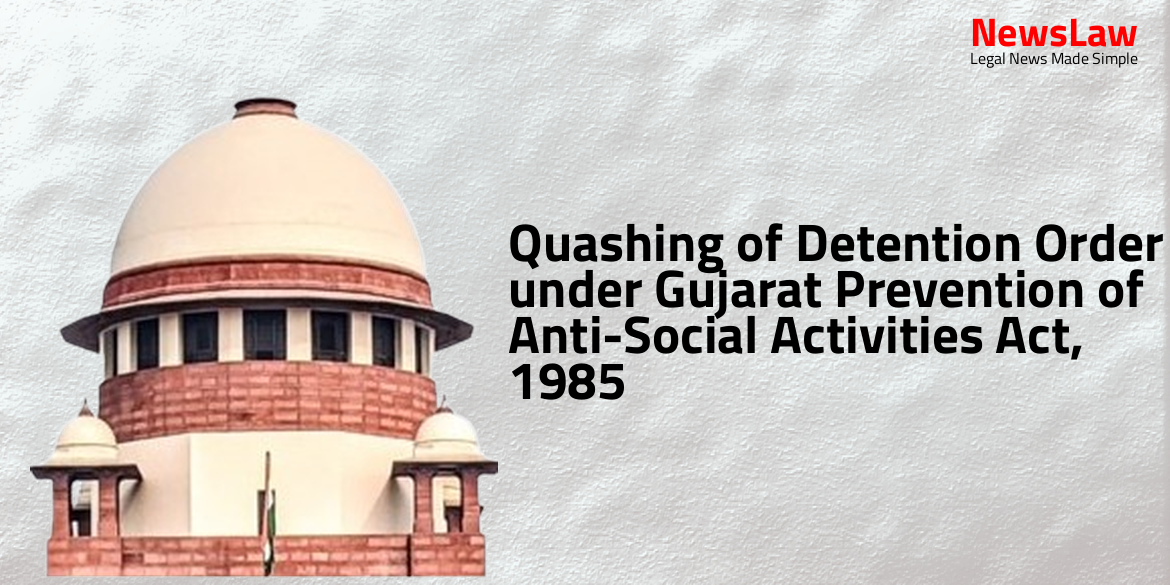In a recent ruling by the Supreme Court of India, a judgment on an Anticipatory Bail Application has been pronounced. This decision has far-reaching implications for the legal landscape, shedding light on the delicate balance between individual freedom and societal interests. Stay informed on the latest legal developments and understand the nuances of this case. #LegalJudgment #SupremeCourt #BailApplication
Facts
- Courts need to balance individual freedom with the interest of the society and the State
- Grant of anticipatory bail should be considered on a case-to-case basis
- Petitioner’s apprehension of being arrested is genuine and reasonable based on the facts of the case
- Grant of anticipatory bail subject to certain conditions to ensure cooperation with the investigation
- Anticipatory bail will not interfere with the ongoing investigation
Arguments
- The Additional Public Prosecutor representing the State has opposed the grant of anticipatory bail due to the gravity of the offence.
- The Learned Advocate for the petitioner argues for anticipatory bail with suitable conditions considering the allegations and role attributed to the petitioner.
- The Court must exercise discretion judiciously and strictly following principles established by the Hon’ble Apex Court.
- After hearing both parties and reviewing investigation papers, the Court will decide on granting anticipatory bail.
Analysis
- The factors to consider for bail applications include the presence of prima facie evidence of the accused committing the offence, nature and gravity of the accusation, severity of potential punishment, risk of accused absconding, the character and standing of the accused, likelihood of repeat offences, influence on witnesses, and danger to justice.
- An elaborate examination of evidence and detailed reasons that may prejudice the accused should be avoided at the bail granting stage.
- The analysis considered the role of the petitioner as a witness, their permanent residency and ties to Surat City, and absence of criminal antecedents.
- Learned counsel for the parties heard
- Perused the record of the case
- Considered the facts and nature of allegations
- Role attributed to the accused taken into account
- Exercise discretion in favor of the petitioner
- Considered law from Siddharam Satlingappa Mhetre case
- Reiterated law from Gurubaksh Singh Sibbia case
- The law laid down in the case of Sushila Agarwal v/s. State (NCT of Delhi) is considered
- The precedent set in the mentioned case is taken into account in the current judgment
Decision
- Petitioner to be released on bail upon arrest
- Conditions for bail include cooperation with investigation, availability for interrogation, and attendance at the Police Station on a specified date
- Prohibition on influencing witnesses, obstructing investigation, or leaving India without permission
- Requirement to provide address and passport details to authorities
- Consequences of breaching bail conditions
- Trial Court to independently assess the case without influence from the bail order
Case Title: DHARMESHBHAI HARSHADBHAI SAVALIYA Vs. STATE OF GUJARAT
Case Number: R/CR.MA/6474/2024



